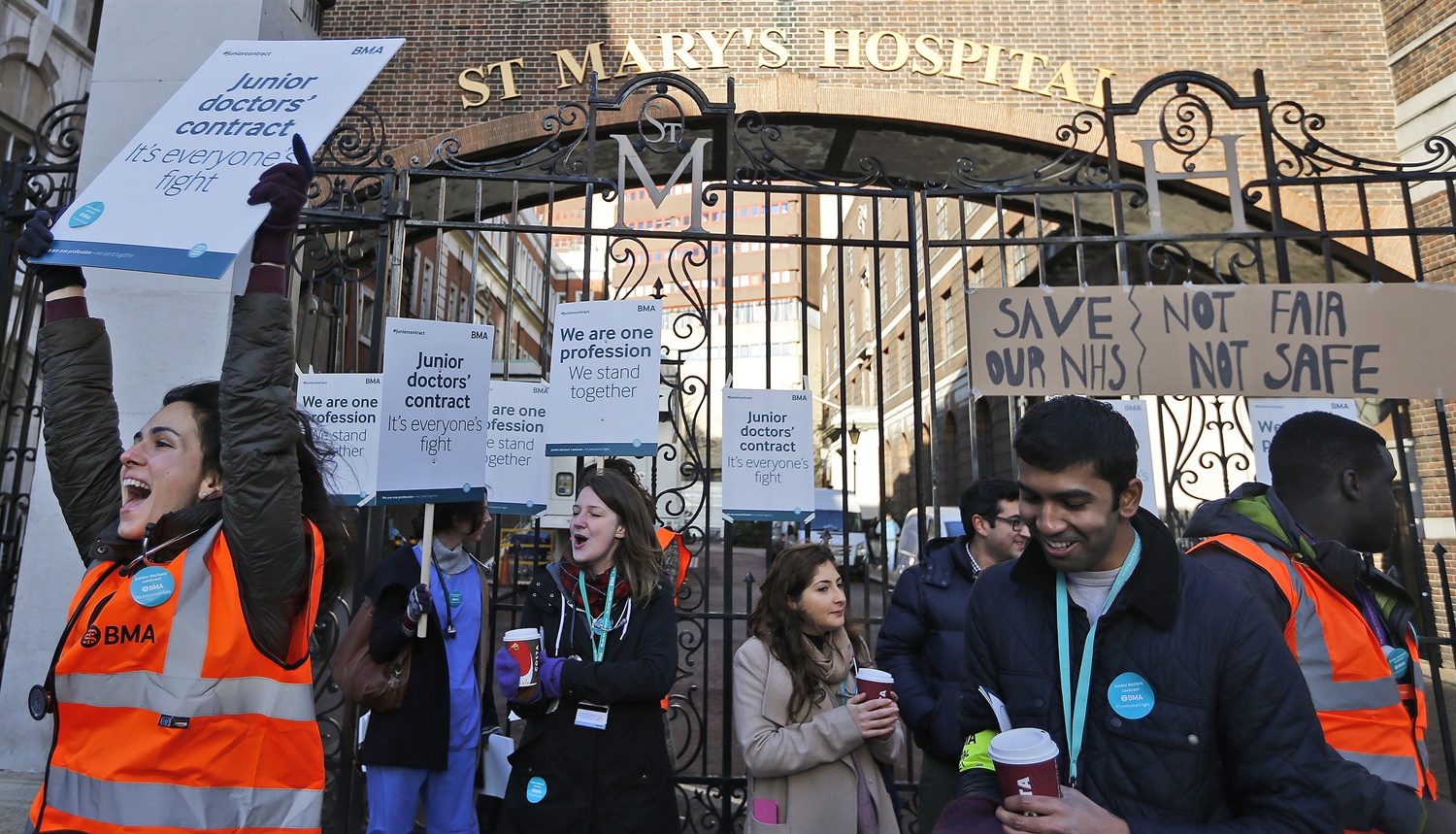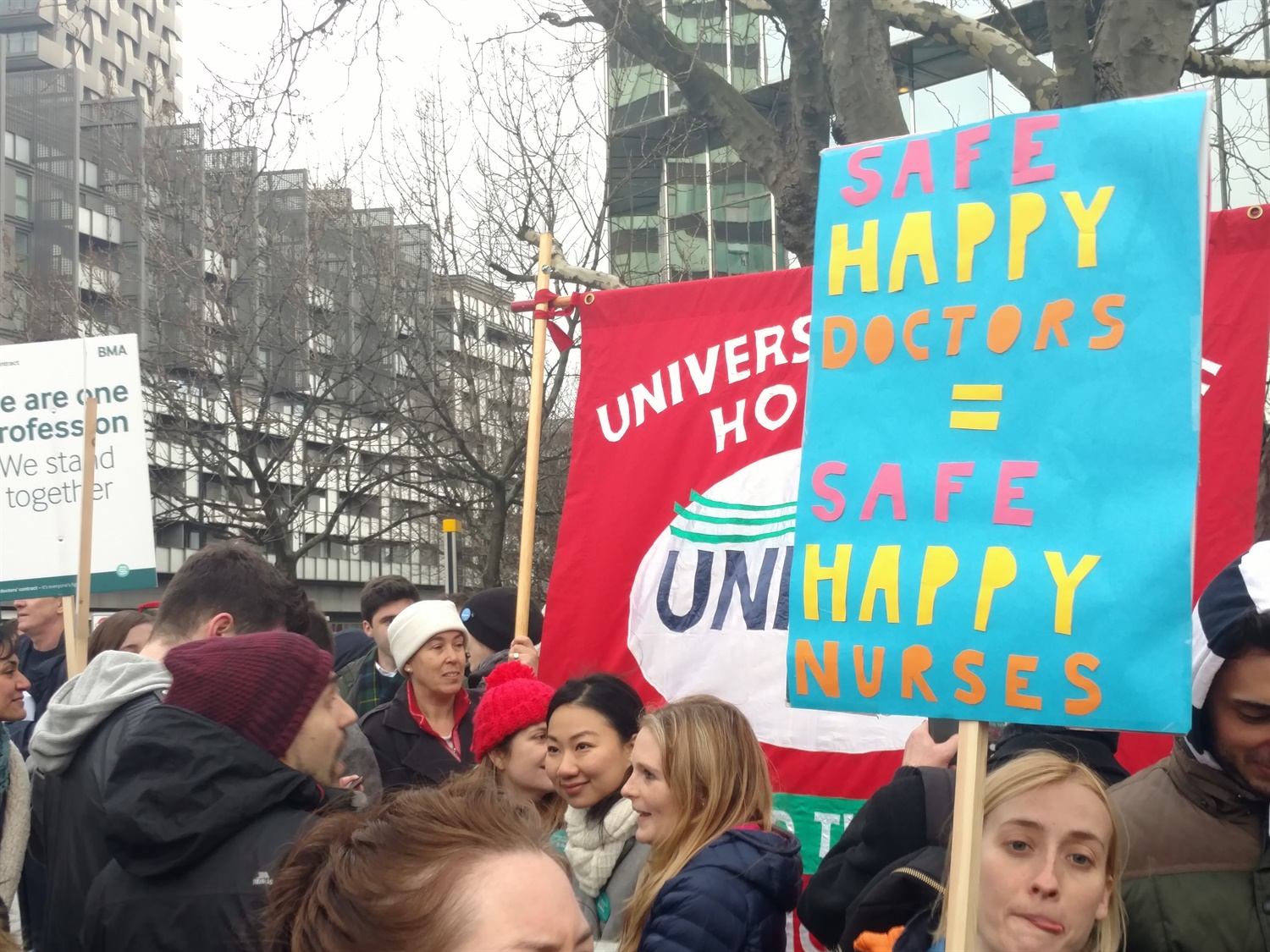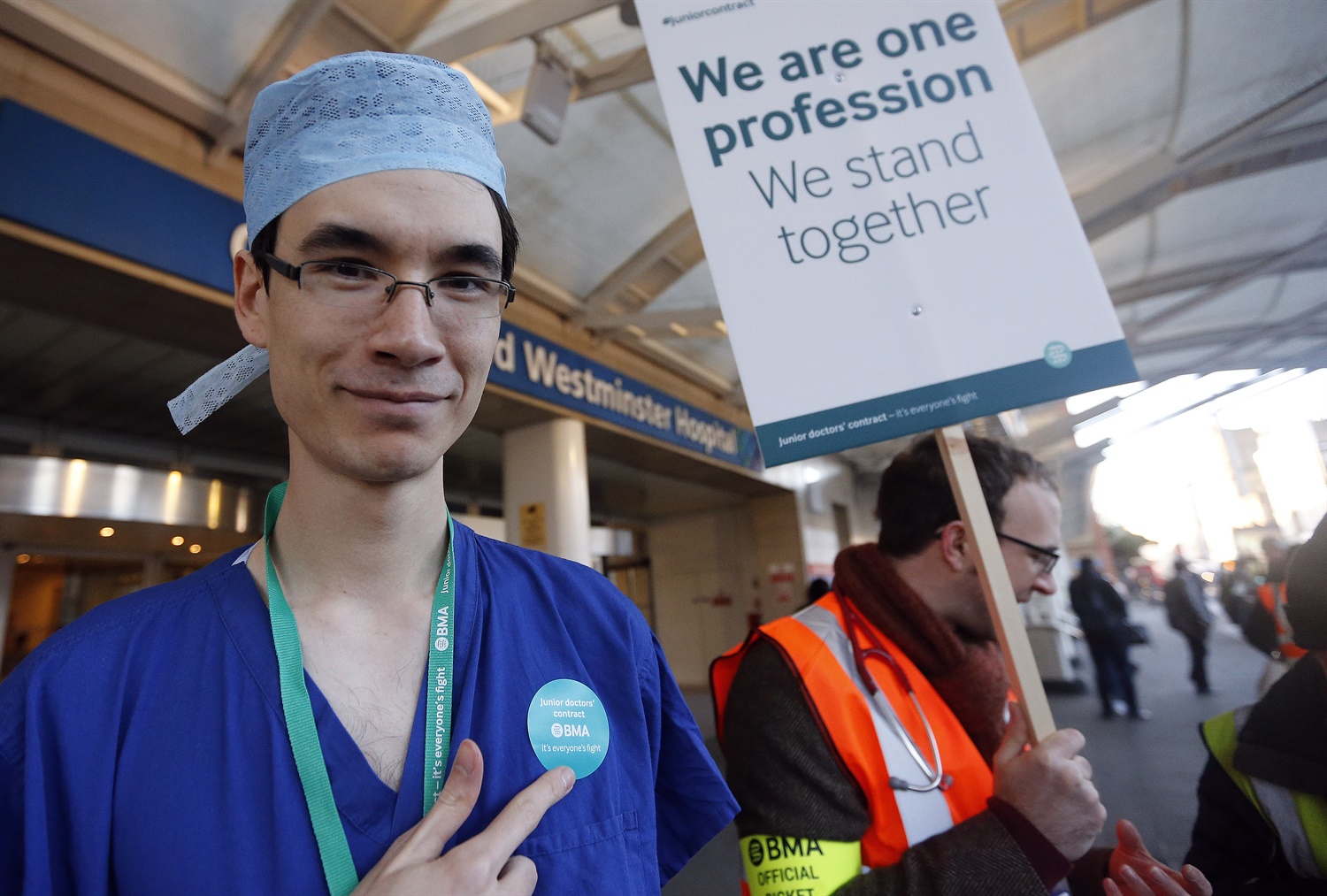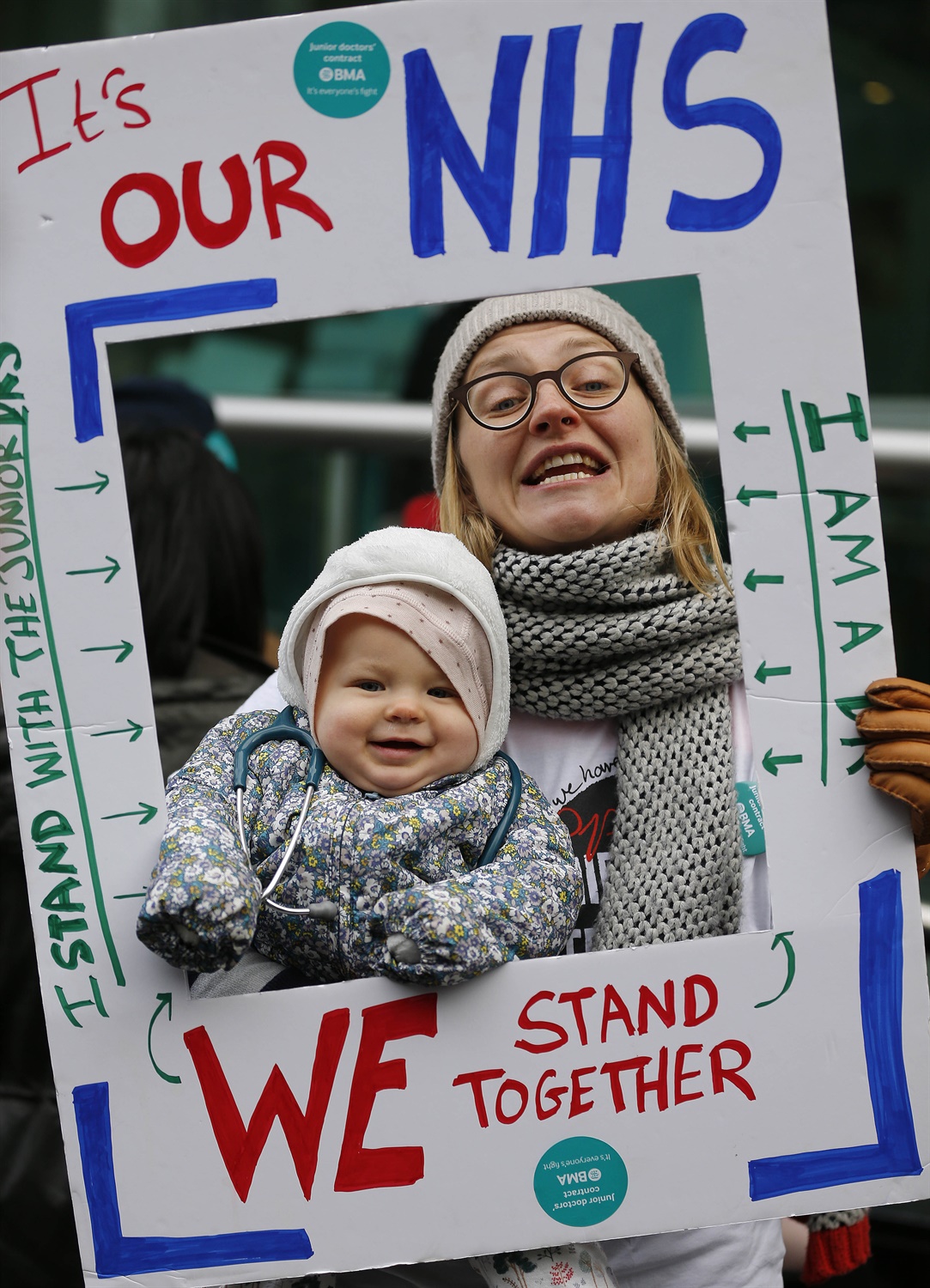13.01.16
‘Optimism’ for further talks after first junior doctor strike in 40 years
UPDATE
Acas has announced that all parties have agreed to re-enter talks this Thursday and Friday (14 and 15 January) to try to reach a negotiated settlement. Discussions are scheduled for 10am.
Senior sources at the BMA, NHS Employers and the Department of Health are hopeful of a return to the negotiating table after yesterday’s first junior doctor strike since 1975 saw almost 40,000 trainees attend over 150 pickets to protest against the government’s proposed contract.
Several trainees attended strikes directly after overnight shifts and many were joined by medical students taking an informal part of the conversation. Most of the posters held up reiterated previous messages of ‘not safe, not fair’ and ‘save our NHS’, while some touched on the subject of the new contract being “all about privatisation”.

According to NHS England, strikes disrupted parts of the NHS with thousands of postponed operations despite nearly 40% junior doctors showing up for work – although this number includes those already scheduled to cover emergency care and not taking action.
“Well-placed sources” are now keen to return to the round table in an effort to dodge the planned 48-hour walkout scheduled for 26 January, the Guardian said. They expressed a “cautious optimism” that agreement could finally be reached after claims that more progress had been made during talks.
One BMA official said they were still “far apart”, but recognised “there is a deal to be done”.
There is also renewed hope that the conflict can be resolved after health secretary Jeremy Hunt brought in Salford Royal’s chief executive, Sir David Dalton, to steer talks with junior doctors on behalf of the Department of Health.

During yesterday’s strikes, which the union said “made quite clear” what they think of the department’s plans to “impose contracts in which junior doctors have no confidence”, a hospital in West Midlands was allegedly forced to order doctors back in through a letter because of unusually high demand.
Dr Roger Stedman, medical director at Sandwell and West Birmingham Hospitals NHS Trust, said there had been “very high numbers” of patients over the last two days, with “fewer than usual” discharged.
“Because of that we decided to require trainee doctors allocated to ward work to attend Sandwell during today’s strike,” he said. “Staff taking action at City are unaffected. We would like to thank local doctors’ representatives for their constructive support and advice.”
The trust guaranteed that the request was not politically motivated after several junior doctors questioned its attempt to undermine strikes, especially as the recall letter had been dated as sent the day before.
But a picket line remained in front of the trust, with a BMA spokeswoman saying the agreement was for junior doctors to return if there was a level 4 incident. The union asked that trainees did not return to work and advised them on the trust’s misuse of correct protocol.
An association spokesman said: “Junior doctors should continue with industrial action until NHS England has confirmed and the BMA has agreed – via the agreed escalation process – that a major unpredictable incident is taking place for a specific trust. The BMA will notify members as soon as such an incident is in place.”
The trust later agreed with the LNC Chair [local negotiating chair from the BMA] to stand down the order for doctors to return to work after claiming staff had been able to cope with the increased numbers of patients.
Professor Sir Bruce Keogh, NHS England’s medical director, had previously said that hospitals could order doctors back to work if services became dangerously overstretched in face of an “exceptional and sustained deterioration of performance”.
Speaking on BBC Radio 4’s Today programme yesterday, Keogh stressed that the only way that matters could be solved is if doctors and patients continue talking and if emergency care was not withdrawn.

‘Wholly unnecessary’
Meanwhile, Hunt only spoke publicly in the afternoon, sending in a department adviser beforehand to speak on his behalf. During the BBC Radio 4’s World at One show, he urged junior doctors to return to talks and dubbed the strikes “wholly unnecessary”.
“At the moment, if you have a stroke at the weekends, you’re 20% more likely to die. That cannot be right, and that’s something every doctor wants to do,” he said.
“The right thing to do is to sit round the table and talk to the government about how we improve patient safety and patient care, not these very unnecessary strikes.”
But commenting on the industrial action last night, Dr Johann Malawana, BMA junior doctors committee chair, said: “Before the government seeks to blame junior doctors for the wider, daily pressures on the NHS, Jeremy Hunt should reflect on the 16,397 operations cancelled in just one quarter last year. Or what he plans to do about the £1.6bn deficit facing NHS trusts? Or his fanciful promises of thousands of new GPs during a recruitment and retention crisis?
“It is testament to all staff, including junior doctors, that despite these pressures the NHS continues to provide the highest levels of care.”
If talks do not go forward, a 48-hour strike is planned from 26-28 January (excluding emergency care), with a full walkout scheduled for 10 February.

(Images by NHE and from photographers Frank Augstein and Alastair Grant for PA Images)